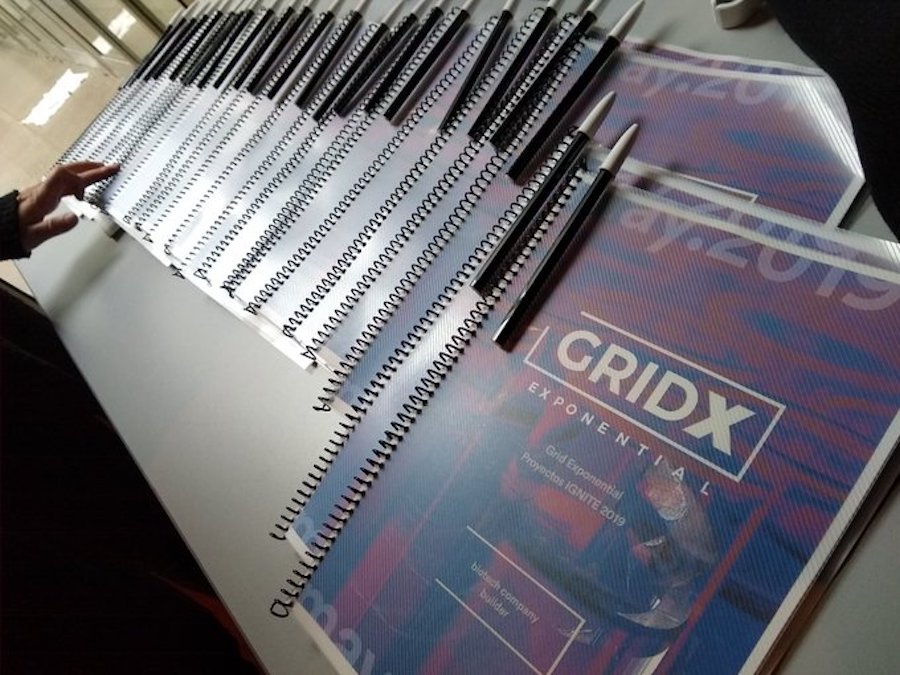It took Matias Peire three years to decide what to do after exiting the video monitoring and processing business he’d created for the broadcast industry. He knew he wanted to make a difference and was tempted by venture capital. But after deciding to focus on the biotechnology sector — where he felt his experience communicating with technical experts would be beneficial — he decided traditional venture capital was not the way forward.
“There was a huge distance between science and venture capital, particularly in Latin America but also across the world,” he told AFN on the sidelines of Argentina AgTech Week, the bustling 5,000 attendee-strong Aapresid event in Rosario. “We have the knowledge and technology to solve the problems of humanity but we don’t have well-formulated projects to put those ideas into something tangible.”
So Peire spent the next few years researching business development and investment models that could be sustainable and scale and bring together science, capital and entrepreneurs.
“I always thought a company might have the right culture to translate knowledge into impact, and I thought I could be a good translator as I was with the IT guys but now with scientists. I had learned to talk with tech people, not only about technical issues, but how they think, what they want, and what they really care about.”
So he created Grid Exponential (GridX), a company builder — we also call these types of resources venture development orgs or venture studios — and set to raising funding. But he soon realized that a lacking investment track record or scientific background was not going to raise him money, even though investors were receptive to the model.
“It was a chicken and egg problem,” he adds.
So he decided to just start the process without any funding and went to labs and universities to meet scientists, mapping out 100 projects around Argentina that could potentially become businesses.
With that map, he started looking for investors to back the first project and happened to meet Hugo Sigman, the pharmaceuticals billionaire, through Graciela Ciccia, the R&D director of Sigman’s Grupo Insud who Peire calls his “fairy godmother”.
He later met other high net worth individuals through Sigman and brought in investment from pharmaceutical companies Bago and Gador, soybean crushing business Vicentin, as well as MercardoLibre cofounder Marcos Galperin. GridX now has $17.8 million under management.
Here’s a look at the six food & agriculture-related companies GridX has helped to create so far (the portfolio includes many more across biotech verticals).
Stämm is manufacturing microbes using small-scale bioreactors in contrast with the more typical large-scale facilities needed. The company uses microfluidics to more accurately ferment microbes that have already been tested as a possible feedstock for the cultured meat industry, according to Peire.
“Our groundbreaking approach renews the possibilities of low scale production systems as a viable solution to supply local markets and Unleashes Exponential rates of innovation in Biotech,” reads the website. “We have merged the technological capabilities of microfluidics, electropermeabilization and soft robotics towards a fully automatized continuous batch system.”
BeeFlow is a technology that feeds bees organic molecule compounds to boost their immune systems and to train them to pollinate less-enticing flowers. This was the second company GridX created and is a good reference point for how GridX works, according to Peire.
“We were working with them one year before we closed the fund in 2017 as we first start talking with the scientists during our mapping exercise and we found this expert on bee health who had developed a specific compound for improving the health of bees. That product was only for selling to the beekeeping industry, which wasn’t enough for us, so we start working on how we could rethink this knowledge into something bigger,” Peire told AFN. “We got the pollination issue, we saw the huge problem, but we didn’t see we cold move forward only with him so in parallel we were looking for young entrepreneurs and we found Matias, a 24-year old looking to make a huge impact. (Read more about BeeFlow in our recent article about its $3 million seed funding here.)
Cell Farm (Granja Cellular) is a cultured meat startup created by Sofia Giampaoli, a chemical engineer, who was looking for a scientist and cofounder to help her start a company. GridX helped her in that process and are now encouraging her to become an ingredient company as opposed to food brand. “There’s not much way to differentiate in this space yet but it’s a huge market and I think cultured meat will eventually be the cheap option, making it an ingredient for the food processing industry,” said Peire.
Alytix develops antibiotics alternatives based on bacteriophage technology for control and treatment of bacterial infections. Bacteriophages are naturally occurring viruses that are specific for bacteria. As well as being safe, bacteriophages self-replicate, and could be dosed in low quantities and then scale up in the presence of infection. The technology is relevant for both animals and humans.
Tomorrow Foods is a plant-based ingredients supplier.
FeedVax is developing oral vaccines for the aquaculture sector and just got accepted into the Hatch Accelerator, according to Peire.





